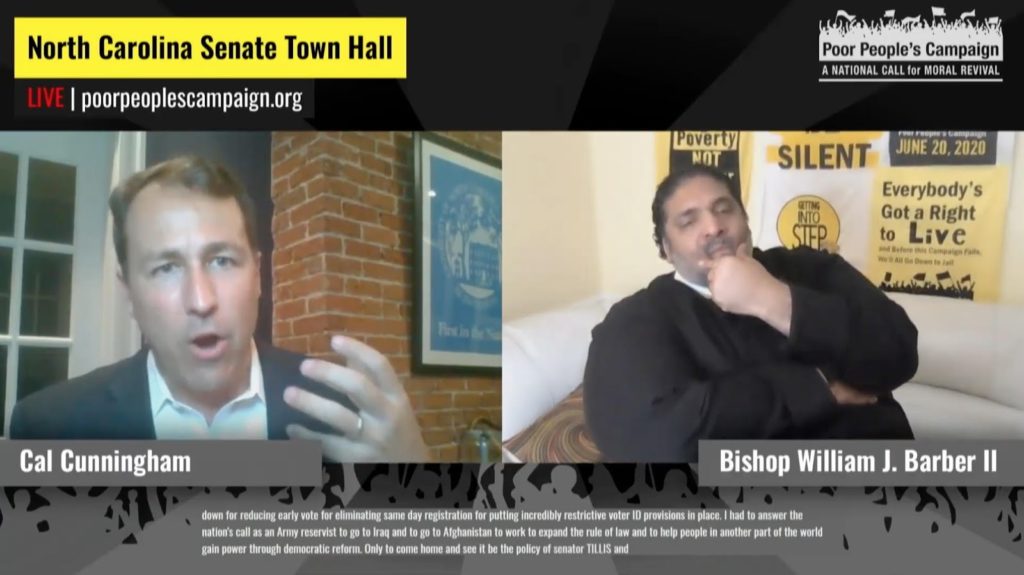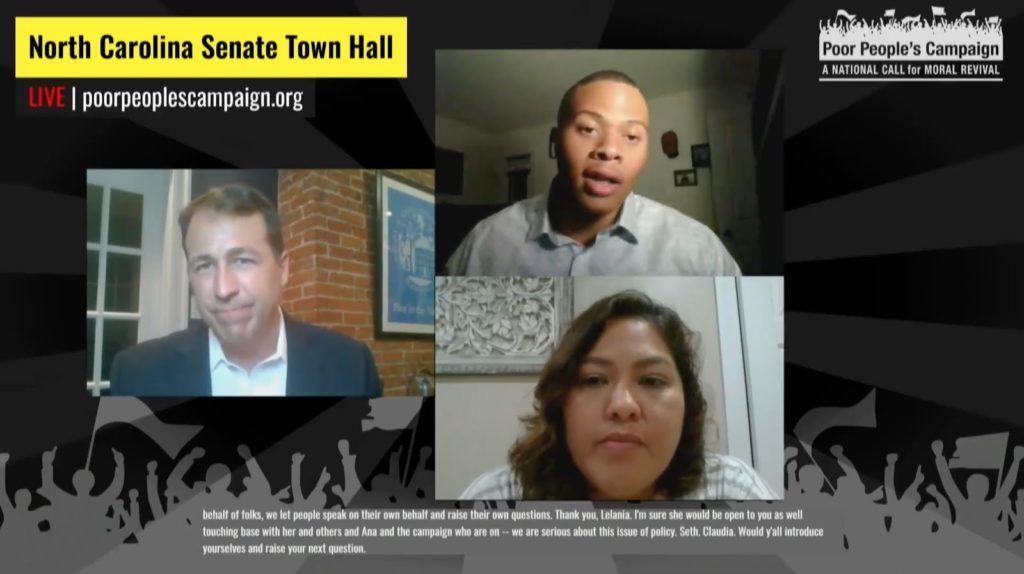September 9, 2020
U.S. Senate challenger Cal Cunningham responded to the policy priorities of the Poor People’s Campaign during a town hall, saying he supports a living wage, health care for all and restoration of the full Voting Rights Act.
Cunningham, the Democrat who’s challenging Republican incumbent Sen. Thom Tillis, said he supports several measures to ameliorate poverty in North Carolina and the country, including a $15-an-hour minimum wage; Medicaid expansion and expansion of an earned income tax credit.
He spoke during the first of several Senate town halls that the Poor People’s Campaign is sponsoring in key states. Tillis didn’t respond to numerous attempts that the Poor People’s Campaign made to reach him, instead choosing not to address questions directly from poor and low-income people.
“This issue of poverty and low wealth is not an issue on the margins,” said Rev. Dr. William J. Barber II, co-chair of the Poor People’s Campaign: A National Call for Moral Revival. “It’s not an issue just for one set of people. It is an issue for North Carolina. It is a place where we have to deeply consider what it means to be and not to seem when it comes to caring for all of our people.”

The town halls follow the release of a Poor People’s Campaign study, conducted by a researcher at Columbia University, showing a small uptick in the number of poor and low-income can change the political calculus of the nation.
“Serving means making sure that the voices of those who had been left out and the voices of those who have been left behind are finally heard in the halls of the U.S. Senate,” Cunningham told the thousands of people who joined the town hall online.
Three impacted people questioned Cunningham, and they were followed by questions from the campaign’s co-chairs, Barber and Rev. Dr. Liz Theoharis.
The three impacted people who asked questions are Lelania Wince, 47, of Asheville, a stay-at-home mother of five whose family lives on her husband’s salary as a teacher; Seth Washington, a senior at N.C. A&T State University in Greensboro who is fighting gerrymandering; and Claudia Diaz of Burlington, who arrived in the U.S. at 7 years old as an undocumented immigrant from Mexico who only after many years was able to gain citizenship, and who said her son was questioned for a long time when he voted last year for the first time.
“For the 4.5 million folks that are living in poverty in North Carolina, what kind of policies are you going to try to enact to help people like us, people are just living barely week to week, month to month. And have no health insurance and really are just barely surviving?” Wince asked.
Cunningham responded that he supports expansion of both the earned income tax and the child tax credit so that it provides eligible families with $300 a month for each child.
Cunningham also criticized the “monster suppression law” that the North Carolina legislature passed when Tillis was the House speaker and was overturned by a federal court. He said he supports restoration of the full Voting Rights Act.

In 2013, the U.S. Supreme Court invalidated a portion of the act known as “preclearance,” which required some states to get federal permission before changing the administration of their elections. The U.S. Senate has refused to act on a bill to restore that requirement.
“It’s corruption. They bend the rules, they cheat in order to try to win,” Cunningham said. “And why do they try to win? To hold power. And what do they do with that power? They pass laws that benefit the wealthiest Americans, the biggest corporations. And it’s the wrong answer for America. It’s the wrong answer for North Carolina.”
He also addressed the national response to COVID-19, pointing out the disproportionate effect on people of color since they are more likely to hold essential jobs that require them to work and less likely to have health insurance.
“We’ve got to have a robust national response (to COVID-19) for those who are the most likely to be at risk, most likely lost a job, (who) need unemployment assistance today,” he said.
The Poor People’s Campaign is non-partisan but focuses on policy change and building power among poor low-income people around an agenda that lifts from the bottom.
Contact: Martha Waggoner | [email protected]
The Poor People’s Campaign: A National Call for Moral Revival, is building a broad and deep moral fusion movement rooted in the leadership of poor people to unite our country from the bottom up. We demand that both major political parties address the interlocking injustices of systemic racism, poverty, ecological devastation, militarism and the distorted moral narrative of religious nationalism. Our updated agenda, A Moral Policy Agenda to Heal America: the Poor People’s Jubilee Platform, addresses these issues.
